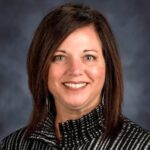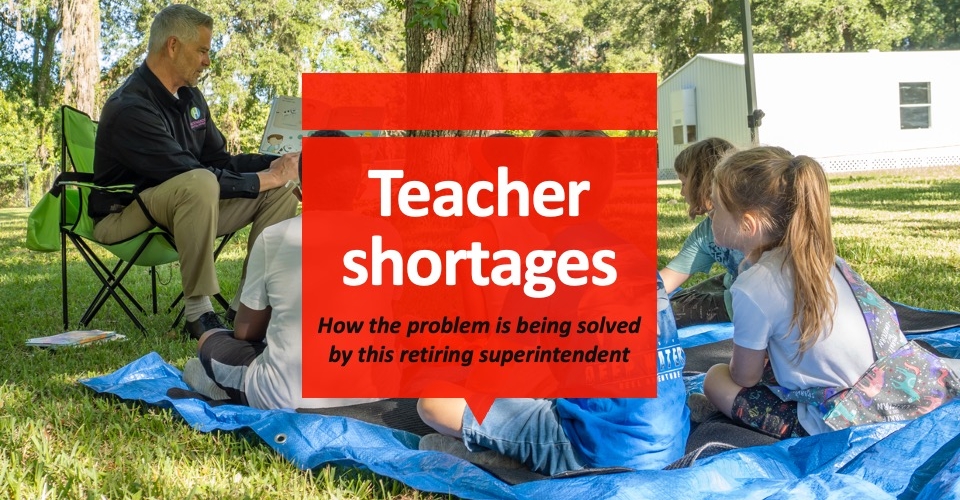Principal Natalie Page’s high school in rural Illinois serves just 200 students and 20 teachers. She’s leaning into the positives of leading the community, despite the challenges that come with recruiting teachers and providing an expansive curriculum at Sesser-Valier High School.

“Something that makes Sesser-Valier so special is the family atmosphere,” Page says. “Kids know they are seen and cared for and that we want what’s best for them.”
Students who transfer in from bigger schools often comment on the higher levels of attention they get from Page and her team, whose building is part of Sesser-Valier Community Unit School District 196.
‘Talking out of School’ podcast: Can we conquer chronic absenteeism?
“When kids move in from slightly bigger districts they say, ‘The teachers there didn’t care if I was failing, but you guys are all over me,'” Page explains.
The school’s size and rural location mean she and her team are creative in meeting students’ academic and extracurricular needs. “We don’t have an abundance of money, we don’t have an abundance of teachers,” she notes. “You have to teach English and you have to teach math, so how do you fit in those extras?”
Page has partnered with the local community college on a new CTE program in manufacturing. She is working with the college and other institutions of higher education to encourage her teachers to get certifications in additional subjects so the high school can expand its course offerings.
She has been able to hire an additional social worker to take some of the load off the school’s guidance counselors. It’s one of the main reasons she feels her school is returning to normal after the disruptions of the pandemic.
“Having that extra person has led to less triage and more consistent treatment because it’s somebody for our kids to go to,” she says. “Our kids are falling back into following rules, and I think this year our teacher felt better because it has not been as chaotic.”
Advocate for educators
Her overall leadership philosophy is more about offering help and guidance than giving orders. She strives to be a unifier who keeps the team focused on tasks such as continually improving the high school’s program to better kids’ needs. “I don’t see myself at the top of the pyramid with everyone under me, I see myself under everybody, holding up a big board and supporting them,” she says. “I am not doing the most important work—the teachers and the kids are doing the most important work.”
Page also has her legacy in mind as she moves into the latter part of her career. Right now, educators are feeling pressure from all sides as some parents bash schools on social media and education has become embroiled in political squabbling. On the one hand, certain parents are eager to push back when their children face discipline or academic interventions while, on the other hand, elected officials continue to push unfunded mandates on school districts, she contends.
“I want to go out being an advocate for educators, for people to know how many fantastic and caring people go into education just to make the world a better place,” Page concludes. “I hope educators are treated like professionals—they need to be trusted more because they know what they’re doing.”









